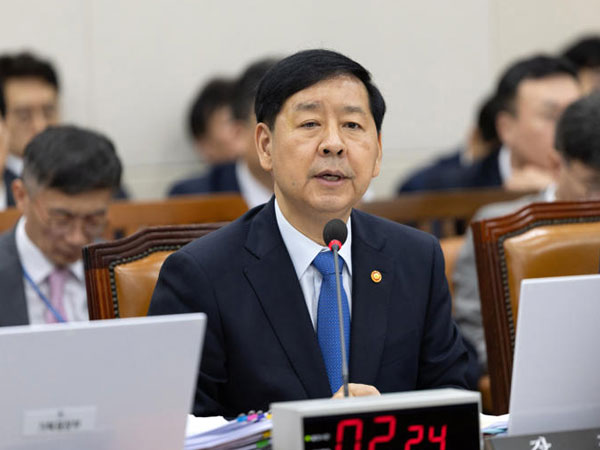 Deputy Prime Minister and Minister of Economy and Finance Koo Yun-cheol stated on the 13th, “The issue of opening major agricultural and livestock product markets such as rice and beef in tariff negotiations with the U.S. is not being discussed at all.”
Deputy Prime Minister and Minister of Economy and Finance Koo Yun-cheol stated on the 13th, “The issue of opening major agricultural and livestock product markets such as rice and beef in tariff negotiations with the U.S. is not being discussed at all.”
Amid ongoing difficulties in South Korea-U.S. negotiations over the method of investing $350 billion in the U.S., this clearly draws a line against the possibility of resolving the negotiations through concessions in the agricultural and livestock product markets, as suggested by some.
During a national audit at the National Assembly’s Planning and Finance Committee in the afternoon, Deputy Prime Minister Koo responded to a question by People Power Party Rep. Yu Sang-beom, who stated, “There are opinions among experts that to resolve the tariff negotiations, South Korea has no choice but to consider additional concessions such as opening the agricultural market,” by saying, “The opening of the agricultural market is not a major issue in negotiations with the U.S.,” and added the above remarks.
Deputy Prime Minister Koo explained, “The negotiations with the U.S. focus on whether to invest the $350 billion all at once, the investment method, and the distribution of fund profits,” adding, “The issue of opening the rice or beef markets has never been discussed before and is not being discussed at all currently.”
During the audit, there were focused questions regarding the Lee Jae-myung administration’s self-praise in July’s negotiations, where they claimed, “The negotiations were so successful that no agreement document was needed,” but then entered a deadlock starting in August.
Deputy Prime Minister Koo visited the U.S. at the end of July and agreed to lower reciprocal tariffs from 25% to 15% (a reduction of 10 percentage points) in exchange for a $1,500 investment in the shipbuilding industry (the Masga Project) and an additional $200 billion investment in the U.S.
At the time, the presidential office evaluated the agreement with the U.S. as “a well-conducted negotiation that was quite favorable to us.” However, as the U.S. demanded in August that nearly the entire $350 billion be contributed in cash, the final resolution of the South Korea-U.S. tariff negotiations has been delayed for nearly three months.
Regarding these criticisms, Deputy Prime Minister Koo explained, “When we reached an agreement with U.S. Secretary Rutnick on July 30, we clearly agreed not only on cash contributions but also on combining loans and guarantees,” adding, “Although there were various disputes over the distribution of investment profits, the government had argued in favor of South Korea’s interests.”
Continuing, Deputy Prime Minister Koo stated, “The two issues became distorted when Japan promised to contribute $550 billion and resolved the investment profit distribution by initially agreeing to a 5:5 ratio but later changing it to 9:1, leading the U.S. to demand the same scheme from South Korea,” adding, “The government stated that the U.S. proposal was different from the original agreement and sufficiently explained South Korea’s foreign exchange situation to Secretary Rutnick.”














© Copyright 2025 The SSResource Media.
All rights reserved.